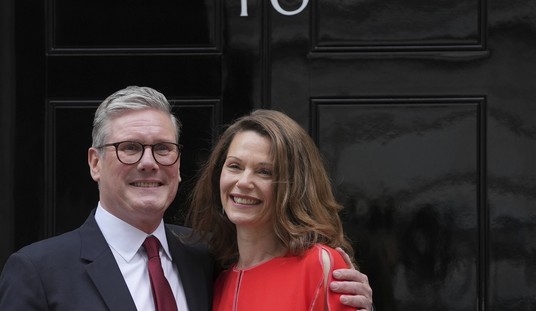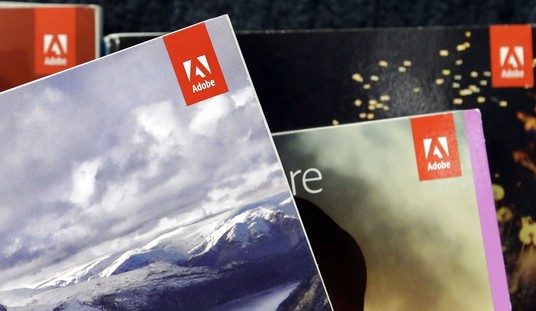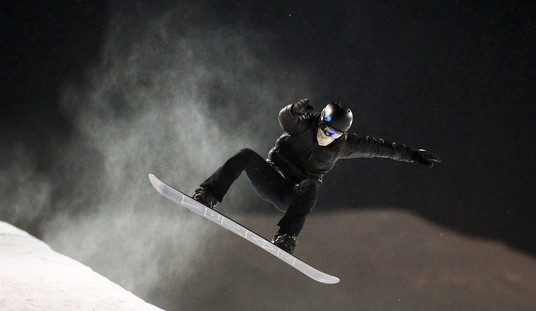Sorry to accentuate the negative in the headline. With O-Care in constant meltdown since early October, I get so few chances these days to indulge my inner eeyore.
Seriously, though, an interesting poll. After nine weeks of wreck and ruin, the law’s favorable rating is in the toilet. You would think that would mean there’d be many more people calling for it to be scaled back today than there were nearly three years ago. Not so:

I think both the January 2011 and October 2013 numbers are outliers. The former was compiled just two months after the big red midterm wave that handed the House back to Republicans in 2010. The country was disgruntled at Hopenchange, mainly because of ObamaCare but also because of economic stagnation and some basic disillusionment with the Obama hype, and so it could be that they were more likely than usual at the time to say they wanted his signature “achievement” rolled back. On the flip side, after the website blew up on the launch pad last month, Democrats and left-leaning independents circled the wagons around Obama. That’s why the plurality that prefers expanding it to keeping it as it is momentarily shifted in October before returning to the status quo this month. Under normal circumstances, lefties who strongly support a big government role in health care want to see the law expanded. But when O-Care debuted and promptly fell on its face, some of them shifted to a siege mentality and decided it was super keen as-is. Either that, or the website’s horrendous launch momentarily shook even liberals’ faith in the idea of expanding the state’s role in health care. Now that things have stabilized a llttle, they feel comfortable in November re-embracing their dreams of single-payer.
Like I say, interesting. But that still doesn’t explain why we’re not seeing more support for repeal now, in the wake of the Healthcare.gov apocalypse. Especially among independents:

What’s happening with Dems there is no mystery. Like I said, some of them are emerging from siege mode in October and others have simply given up on ObamaCare working as designed in its current form after a second month of trauma. Indies are a puzzle, though, especially since independents as a self-identified group have trended a bit redder over the last few years as some tea partiers have fled the GOP. Admittedly, we’re talking about only a few points shifting, but with the collapse in O-Care’s favorable rating this month I expected more polarization within the group — a small surge among left-leaning independents abandoning the law as-is and calling for it to be expanded (which is what we see here) and a small surge among right-leaning indies calling for repeal or scaling back. We don’t see that, which makes this a rare and precious “good” poll on ObamaCare for Democrats. It may be that the baseline for partisan views on O-Care is so firmly cemented by now, after three and a half years of people reading and talking about it, that it’ll take a second order of logistical nightmares and Obama lies to move the numbers further downward. Could that happen, realistically? Could ObamaCare’s press, which is already in near ruins, actually disintegrate further, to the point where even indies throw up their hands and say “repeal it”?
In fact, health care experts say, it’s not out of the question that the Obama administration could face the worst-case scenario on Jan. 1: the number of uninsured Americans actually goes up…
[B]y the best insurance industry estimates, as many as 4 million to 5 million people have gotten cancellation notices because their individual health insurance doesn’t meet Obamacare standards — meaning they’ll have to replace their health coverage. Even if the new, post-repair rate of signups continued at the faster pace, HealthCare.gov — the enrollment site that covers 36 states — would still be lucky to enroll 450,000 people by the end of December…
“The arithmetic says that if they cannot, for mechanical reasons, sign up at least enough to replace those who lost individual coverage we will end up with a net increase in the number of uninsured,” said Mark Pauly, a conservative health economist at the University of Pennsylvania.
I hadn’t thought of that, just because there are so many different avenues for people whose plans have been canceled to scramble for coverage before January 1st — signing up through the website (good luck), calling their insurer and picking a new plan (or re-enrolling in an un-canceled plan), or being automatically enrolled by the insurer in a new plan to avert a lapse in coverage. Some fraction of that 4-5 million will fall through the cracks, though, and some other fraction will try to sign up but stumble over one of the hoops the law makes them jump through. Is it possible that there’ll only be 900,000 new enrollees on January 1st versus a million people with cancellation notices who are still in limbo? If it happens, how do Democrats spin that as a vindication of “universal” health care? And even if it doesn’t, what happens next January after the employer mandate takes effect and tens of millions more people see their employer-provided coverage dropped? The number of newly uninsured probably won’t overtake the number of newly insured next month, but next year? We may not have seen the worst of the polling yet.
Update: A self-fulfilling prophesy?
More than half of 18-to-29-year-olds who were surveyed in the most recent United Technologies/National Journal Congressional Connection Poll say it is likely the law will be repealed in 2014, even though the chances of that actually occurring are remote.
According to the poll, 18 percent of respondents in this age group said it was “very likely” Obamacare would be repealed by Congress next year, while 33 percent said it was “somewhat likely” the law would be done away with. The survey has an overall margin of error of plus or minus 3.6 percentage points.
That has real-world implications. The administration has relentlessly wooed these so-called young invincibles—young, healthy Americans—to sign up to purchase health insurance through online exchanges. Those consumers, who tend to use health care services less frequently, are needed to subsidize the cost of treating older, sicker ones. Without their participation in large numbers (the target for next year is 40 percent of all new enrollees), premium rates for consumers in the exchanges could rise.
If they don’t think the law will be there for long, will they bother signing up next year?








Join the conversation as a VIP Member